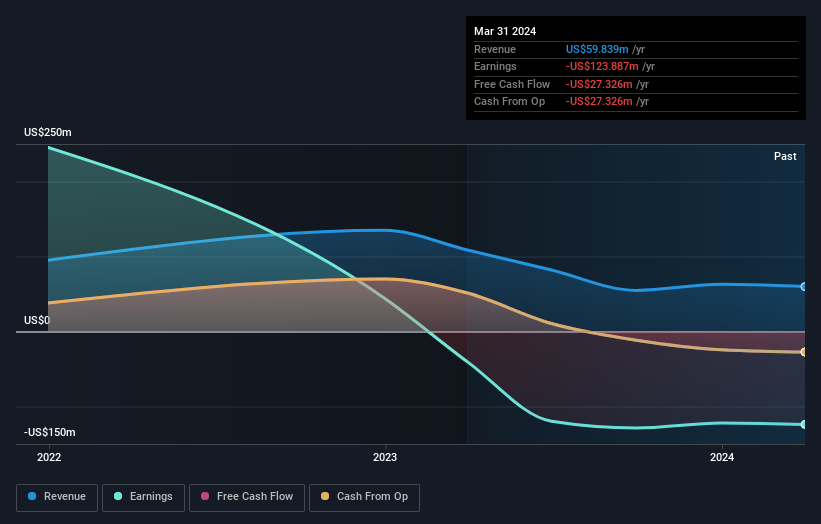NexPoint Diversified Real Estate Trust (NYSE:NXDT) is favoured by institutional owners who hold 51% of the company
Key Insights
Institutions' substantial holdings in NexPoint Diversified Real Estate Trust implies that they have significant influence over the company's share price
50% of the business is held by the top 12 shareholders
If you want to know who really controls NexPoint Diversified Real Estate Trust (NYSE:NXDT), then you'll have to look at the makeup of its share registry. The group holding the most number of shares in the company, around 51% to be precise, is institutions. In other words, the group stands to gain the most (or lose the most) from their investment into the company.
Because institutional owners have a huge pool of resources and liquidity, their investing decisions tend to carry a great deal of weight, especially with individual investors. Hence, having a considerable amount of institutional money invested in a company is often regarded as a desirable trait.
Let's delve deeper into each type of owner of NexPoint Diversified Real Estate Trust, beginning with the chart below.
Check out our latest analysis for NexPoint Diversified Real Estate Trust
What Does The Institutional Ownership Tell Us About NexPoint Diversified Real Estate Trust?
Many institutions measure their performance against an index that approximates the local market. So they usually pay more attention to companies that are included in major indices.
As you can see, institutional investors have a fair amount of stake in NexPoint Diversified Real Estate Trust. This implies the analysts working for those institutions have looked at the stock and they like it. But just like anyone else, they could be wrong. If multiple institutions change their view on a stock at the same time, you could see the share price drop fast. It's therefore worth looking at NexPoint Diversified Real Estate Trust's earnings history below. Of course, the future is what really matters.
Institutional investors own over 50% of the company, so together than can probably strongly influence board decisions. Hedge funds don't have many shares in NexPoint Diversified Real Estate Trust. Looking at our data, we can see that the largest shareholder is the CEO James Dondero with 13% of shares outstanding. The Vanguard Group, Inc. is the second largest shareholder owning 8.7% of common stock, and BlackRock, Inc. holds about 5.8% of the company stock.
After doing some more digging, we found that the top 12 have the combined ownership of 50% in the company, suggesting that no single shareholder has significant control over the company.
Researching institutional ownership is a good way to gauge and filter a stock's expected performance. The same can be achieved by studying analyst sentiments. As far as we can tell there isn't analyst coverage of the company, so it is probably flying under the radar.
Insider Ownership Of NexPoint Diversified Real Estate Trust
The definition of company insiders can be subjective and does vary between jurisdictions. Our data reflects individual insiders, capturing board members at the very least. The company management answer to the board and the latter should represent the interests of shareholders. Notably, sometimes top-level managers are on the board themselves.
I generally consider insider ownership to be a good thing. However, on some occasions it makes it more difficult for other shareholders to hold the board accountable for decisions.
Our most recent data indicates that insiders own a reasonable proportion of NexPoint Diversified Real Estate Trust. It has a market capitalization of just US$235m, and insiders have US$33m worth of shares in their own names. It is great to see insiders so invested in the business. It might be worth checking if those insiders have been buying recently.
General Public Ownership
The general public-- including retail investors -- own 34% stake in the company, and hence can't easily be ignored. While this group can't necessarily call the shots, it can certainly have a real influence on how the company is run.
Next Steps:
It's always worth thinking about the different groups who own shares in a company. But to understand NexPoint Diversified Real Estate Trust better, we need to consider many other factors. For instance, we've identified 3 warning signs for NexPoint Diversified Real Estate Trust (2 shouldn't be ignored) that you should be aware of.
Of course, you might find a fantastic investment by looking elsewhere. So take a peek at this free list of interesting companies.
NB: Figures in this article are calculated using data from the last twelve months, which refer to the 12-month period ending on the last date of the month the financial statement is dated. This may not be consistent with full year annual report figures.
Have feedback on this article? Concerned about the content? Get in touch with us directly. Alternatively, email editorial-team (at) simplywallst.com.
This article by Simply Wall St is general in nature. We provide commentary based on historical data and analyst forecasts only using an unbiased methodology and our articles are not intended to be financial advice. It does not constitute a recommendation to buy or sell any stock, and does not take account of your objectives, or your financial situation. We aim to bring you long-term focused analysis driven by fundamental data. Note that our analysis may not factor in the latest price-sensitive company announcements or qualitative material. Simply Wall St has no position in any stocks mentioned.


